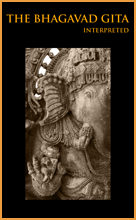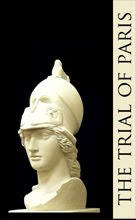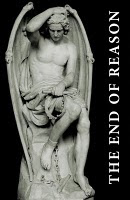I wrote “The End of Reason” to understand the unity of God. I was attempting to reconcile the contradictions inherent in monotheistic faith. I focused primarily on theodicy. How I dealt with that question is already described in the book itself, and I won’t bother to repeat it here. I was attempting to vindicate the absolute “Oneness” of God with the existence of evil. My understanding of that “oneness” or “unity” of God and how I chose to define such unity and address it in “The End of Reason” were strongly influenced by “tawhid.” “Tawhid” is a core belief in Islam that “there is no god but God.” It forms the first of two parts of the Muslim “shahadah” (declaration of faith). The second part of the “shahadah” is the statement that “Muhammad is His prophet.” Only recently did I discover that the idea of God’s unity actually extends to both parts of the Muslim “shahadah.” The second part, while often overlooked, is the key to fuller understanding not only of Semitic faiths, but Indo-aryan ones as well.
The second part of the “shahadah” is not a mirror of the first. While there is unquestionably no god but God, the second part is not a declaration that there is no prophet but Muhammad. It is simply an acknowledgement that Muhammad is to be counted among the prophets of God. In some cases, the second part of the “shahadah” can be more precise and explicit and might include not only the statement that Muhammad is God’s prophet, but that Jesus is God’s prophet and that Moses is God’s prophet. While the first part of the Muslim declaration of faith absolutely precludes the existence of any god except God, the second part does not disclaim founders of prior religious traditions. If one takes “tawhid” seriously, the “shahadah” requires an acknowledgement that there are more prophets than Muhammad. It is an implicit declaration of the unity of God’s chosen ones—His prophets.
This unity of God’s prophets is not to be dismissed as one more interpretation of the significance of the “shahadah.” The Quran makes it clearer still. “Verily His ways differ every day” (Quran 55:29). At all times and in all places, God is engaged in some labor among men, though that labor may seem, to mortal eyes, very different from time to time and from place to place. What God has wrought among the Semites may have a different appearance than what He has wrought among Indo-aryans. Yet this is God’s work nevertheless. Consider the evident differences between Judaism and Christianity or between Christianity and Islam. These closely related faiths are born out of the same history in the same part of the world among peoples with closely related cultural and linguistic backgrounds. Yet there are times when these faiths seem to diverge significantly from one another in their focus, in their commandments, in their practice. Given this, one should expect a truly radical difference between these faiths and Hinduism and Buddhism and Taoism, where the linguistic, cultural, and historical links to Semitic civilization are far more tenuous, not to mention geographic distance and isolation. Yet this is God’s work nevertheless.
In the second surah of the Quran, Muhammad reveals that, “Of all these apostles We have favored some over others. God has addressed some of them, and the stations of some have been exalted over the others” (Quran 2:253). This, of course, explains why we know so much of Jesus and Muhammad and comparatively little of Adam or Salih. However, this statement does not mean that some prophets are “better” than others, for in the second surah only thirty verses later Muhammad reveals that, “We make no distinction between any of His apostles” (Quran 2:285). Thus, while some are better known to us than others, and unquestionably some are not known at all to us, they equally represent God as His messengers. Through them, He performs His work and this work appears to differ among them. Yet they are all God’s messengers and this is all God’s work nevertheless.
Until I came to this realization, more than a decade ago, I was not able to accept the validity of Islam or the station of Muhammad as God’s prophet among the Arabs. I was born into a culture with little understanding or appreciation of Islam and where libelous comments about Muhammad are circulated as though they were facts. Ironically, those who would deny Muhammad because of some action he undertook or some judgment he made never worry much about the striking consistency Islam has with Judaism, at least in terms of scripture. God is capable of wrath and is to be feared. Those who would deny Muhammad’s station on this basis likewise must renounce many of the Old Testament prophets who acted similarly. Jesus did not seem to act as Moses did or as Muhammad did. Yet Christians embrace Moses and deny Muhammad. It must be remembered that the people among whom Moses and Muhammad arose were very similar culturally—they were barbarous tribes of semi-nomads who regularly practiced child sacrifice in the first case and female infanticide in the second. No surprise then that Moses and Muhammad dealt severely with them. Had Jesus arisen among people at that state of civilization, I suspect he would have acted no differently.
Once I understood and could reconcile the seeming differences among His messengers with the unity of His messengers, then Muhammad’s station became very clear to me and I emerged from the wilderness of my many doubts. Nowhere in the Quran, in the Torah, or in the Gospel is this reconciliation impossible. These faiths possess enough depth to embrace one another and likewise to embrace the Indo-aryan faiths with which I am concerned in “The Temple of Hanuman.”
Subscribe to:
Post Comments (Atom)






No comments:
Post a Comment